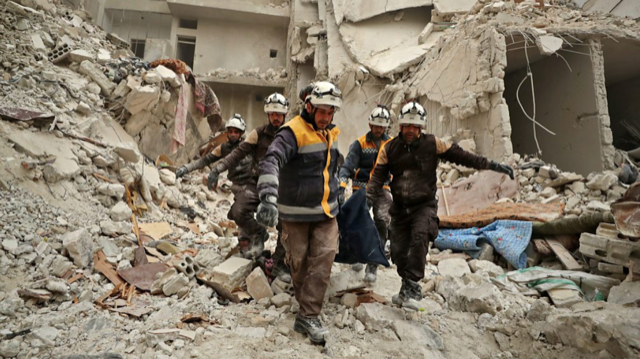
This article appeared in the King Weekly Sentinel on August 11th, 2021.
Canadians have committed themselves to help the world’s refugees, because we can and because it is the right thing to do.
Canada has obligations to the Afghan translators and their families who served with Canadians in Afghanistan and are now at risk from deadly Taliban reprisal. Three years ago Canada also promised Syrian “White Helmet” volunteers and their families that they would be resettled in Canada within three months of arriving in a Jordanian refugee camp. These women and men organised themselves and saved thousands of lives in parts of the country where there were no government services. They ran toward danger to begin search and rescue, put out fires, and repaired damage to electricity and water, serving distressed civilians in various ways. Then in 2018, the White Helmet rescuers themselves needed rescuing from the advancing soldiers of the al-Assad regime.
Canada has obligations by international treaty to accept refugees. In December of 2018, those obligations were made more clear when Canada signed the Global Compact on Refugees. “The Global Compact on Refugees is a framework for more predictable and equitable responsibility-sharing, recognising that a sustainable solution to refugee situations cannot be achieved without international co-operation.” says the United Nations High Commission for Refugees (UNHCR).
In King Township we can do our part as Canadians and world citizens. Generally we are a very lucky bunch. We have enough people and resources here to address many different issues at once and many are doing just that. Some help King residents directly, some are invested in helping other Canadians, some are working to secure a good future for wildlife and for humanity through various adaptation and mitigation efforts, and some want to sponsor refugees and warmly welcome them to our part of the world, helping them to start a new life here in King Township.
In 2020 The Number of Displaced People Grew
During the pandemic in 2020, globally only 34,400 of the world’s refugees were resettled in third countries, down 69% from 2019. This is a marked decline when 1.4 million people are estimated to be in need of resettlement. Also, the pandemic restrictions prevented those fleeing from getting help or finding asylum in a neighbouring country. Most remained displaced within their own country and unable to get help. The number of UN registered refugees and asylum seekers was down from what would have been expected in a non-Covid year.
Despite international calls for ceasefires and despite Covid-related movement restrictions, displacement continued to grow. As a result, more than 1% of the world’s population – 1 in 95 people – is now forcibly displaced. In 2010 it was 1 in 159. Think of it, more than one person to every 100 persons in the world was forced to leave their home behind to stay safe or alive.
By the end of last year, a total of 82.4 million people globally were refugees or asylum seekers. The number who are forced to flee from their homes and neighbourhoods keeps growing because of conflict, violence, persecution, human rights violations and events seriously disturbing public order. Climate change is also driving displacement and increasing the vulnerability of those forced to flee.
The impact from climate change is explained in the 2020 UNHCR Flagship Report on Forced Displacement, “Many are living in climate “hotspots” where they typically lack the resources to adapt to an increasingly inhospitable environment. The dynamics of poverty, food insecurity, climate change, conflict and displacement are increasingly interconnected and mutually reinforcing, driving more and more people to search for safety and security.” Most people, just like us, would want to stay in their own country but have had to accept that they cannot return. These people have registered with the United Nations as refugees to be resettled They are waiting temporarily in a host country or camp for a third country like Canada to sponsor them.
Countries like ours need to get better at welcoming newcomers. We are not a “hot spot” despite heat domes and a faster melting arctic. We can still grow food and have water to drink. Next year, Canada’s government has stated its intention to accept 36,000 refugees. In our unique and renowned private sponsorship programme, where the finances and time are volunteered by
individual Canadians to support newcomers for about a year, that number could be made greater. Like other developed nations, Canada has a responsibility toward serving climate justice by not only reducing our emissions, but also by helping poorer nations cope. Extreme weather events have been occurring in places where the people are more vulnerable and where finding drinking water and growing food is more than a challenge.
To think globally and act locally, to do what seems right, to do what your heart tells you to do, these are things that help us and others. Some people may wish to be part of the local charity King for Refugees which gathers all the goodwill in and around King to sponsor refugees to our wonderful neighbourhoods.
As former King resident and KfR supporter George Elliot put it, “At times it feels like a spit in the ocean, but it’s everything for the people we help.”
If you are interested about King for Refugees, please send an email to king4refugees@gmail.com
